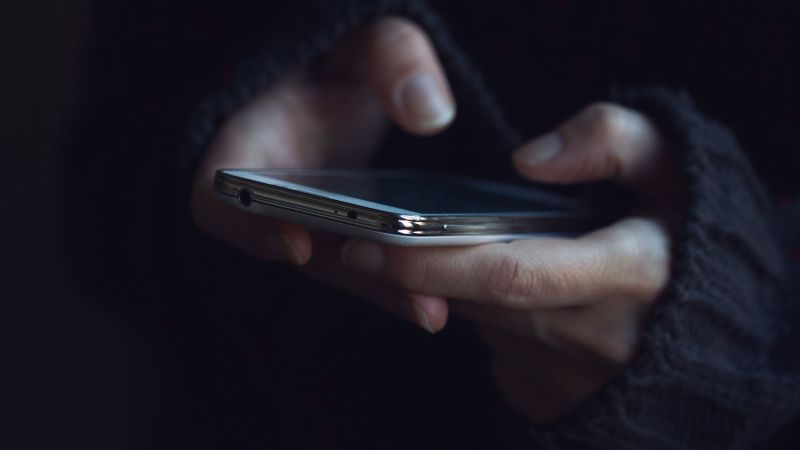Editor’s Note: Listen now as the Chasing Life podcast gets an inside look at a clinic treating kids with problematic media use.
CNN
—
It is indisputable that many of us spend much of our lives in front of our screens – especially our phones.
What’s also indisputable is that some of those activities can take us down a spiraling, time-suck rabbit hole.
In fact, 31% of US adults and 46% of US teens say they are on the internet “almost constantly,” according to Pew Research Surveys from 2021 and 2022.
How much is too much? Sometimes it’s hard to know. But sometimes, the answer is much more obvious. It was for Jerome Yankey. He was a college freshman when he noticed that his use of social media, specifically TikTok, had become problematic.
“It just kind of started to really wear on me physically first, I think, because that was when I was just scrolling for hours, not going to sleep – it was taking hours out of my day. I wasn’t really doing much else in my free time,” he explained.
When the toll shifted from physical to mental, quashing his creativity and warping his sense of worth, he decided he needed to quit. And he did it cold turkey – no easy feat.
Yankey is far from alone. The 2022 Pew Research Survey of US teens found that 67% of them use TikTok, and among those, 16% use it “almost constantly.” That number is even higher among the 95% of teens who use YouTube, with 19% using it “almost constantly.”
For now, internet addiction is not an official clinical diagnosis. There are still a lot of questions about whether it qualifies as a mental health disorder on its own or whether it should be considered part of another mental health condition. There are also questions about how to define it, measure it, test it and treat it.
Most experts do agree, though, that regardless of whether it is a true “addiction” or something else, too much screen time can have bad effects, especially for kids.
That’s where Dr. Michael Rich comes in. A self-described “mediatrician,” Rich treats young patients with what he calls problematic media use at the Clinic for Interactive Media Disorders (which he co-directs) at Boston Children’s Hospital.
“Where the problem comes in is when their day-to-day functions are impaired in some way,” he said. “They’re not getting enough sleep. They are overeating. They are missing school or falling asleep in school. They are withdrawing from their friends.”
He likes to stay away from the addiction model.
“We as a society use the term addiction as pejorative. We think of addicts as weak people with weak character … and we approach addiction, frankly, still as something to be punished rather than healed,” he said.
Rich also doesn’t think technology is the cause of his patients’ problems, but rather, it amplifies them. And he has a counterintuitive approach to helping his young patients, who are often coping with other issues – like anxiety, obsessive-compulsive disorder or just plain old stress. Listen to how they learn how to wean themselves off their devices and adopt a healthier relationship with their electronics.

